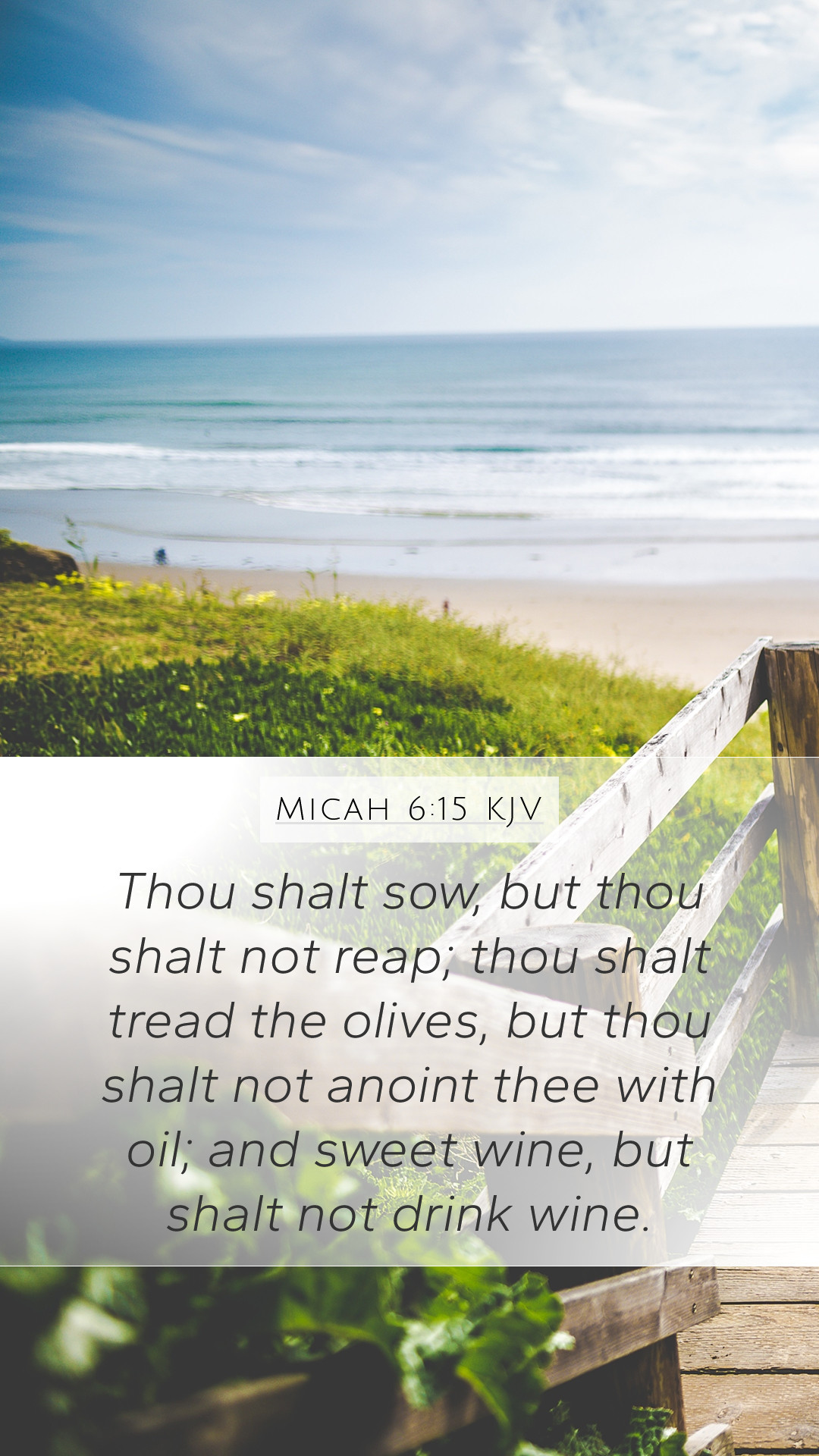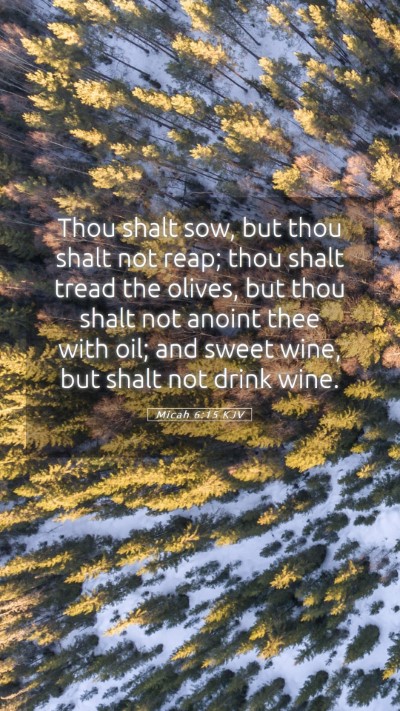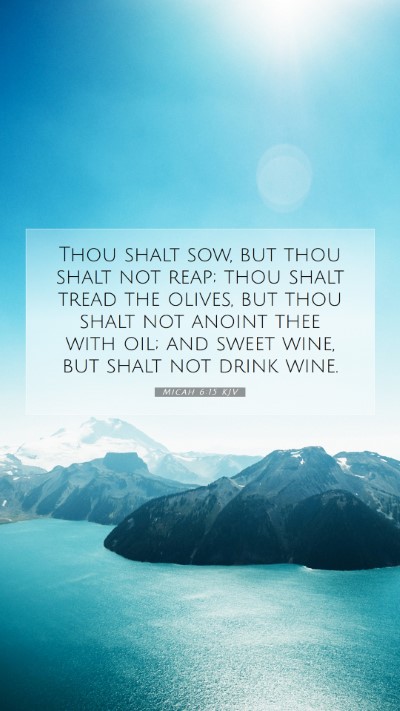Old Testament
Genesis Exodus Leviticus Numbers Deuteronomy Joshua Judges Ruth 1 Samuel 2 Samuel 1 Kings 2 Kings 1 Chronicles 2 Chronicles Ezra Nehemiah Esther Job Psalms Proverbs Ecclesiastes Song of Solomon Isaiah Jeremiah Lamentations Ezekiel Daniel Hosea Joel Amos Obadiah Jonah Micah Nahum Habakkuk Zephaniah Haggai Zechariah MalachiMicah 6:15 Meaning
What is the meaning of Micah 6:15?
Thou shalt sow, but thou shalt not reap; thou shalt tread the olives, but thou shalt not anoint thee with oil; and sweet wine, but shalt not drink wine.
Micah 6:15 Bible Verse Meaning
Bible Verse Meaning of Micah 6:15
Verse Reference: Micah 6:15 - "Thou shalt sow, but thou shalt not reap; thou shalt tread the olives, but thou shalt not anoint thee with oil; and sweet wine, but shalt not drink wine."
Overview
This verse from Micah captures the essence of consequence for the unfaithfulness and corruption that led the people of Israel astray from God’s ways. It emphasizes that despite their efforts, they will find no success due to their impending judgment. The imagery of sowing but not reaping signifies the futility that results from disobedience.
Bible Verse Interpretations
- Matthew Henry's Commentary: Henry explains that the people might engage in farming and other fruitful activities, but because of their sins, their labors will yield no harvest. This reflects God's judgment on those who abandon righteousness.
- Albert Barnes on Micah 6:15: Barnes interprets the verse as a demonstration of the disconnect between human efforts and divine blessing. The sowing and reaping notion illustrates how God's displeasure can lead to the cessation of blessings even when one engages in what should be fruitful labor.
- Adam Clarke's Insight: Clarke expands on the idea of labor without reward. He notes that the symbols of olive oil and wine, which signify abundance and joy, would be distant from those who do not follow God's commandments, highlighting the sorrowful state resulting from their choices.
Meaning of Key Symbols
- Sowing and Reaping: These agricultural terms symbolize the natural consequence of actions—good actions yielding good results under God’s favor, while sin leads to barren outcomes.
- Olive Oil: Representing richness and the presence of the Holy Spirit, the fact that they would not anoint with oil emphasizes a loss of spiritual vitality and blessing.
- Sweet Wine: Symbolizing joy and celebration, the absence of wine mirrors the loss of joy in life due to disobedience against God’s commands.
Application to Daily Life
For modern readers, Micah 6:15 serves as a warning regarding the consequences of straying from God’s teachings. Understanding this scripture can lead to deeper Bible study insights, urging believers to consider their actions and ensure they align with God’s will to avoid spiritual barrenness. It encourages reflection on the importance of living a life pleasing to God to enjoy the fruits of our labor.
Cross References
- Galatians 6:7: "Be not deceived; God is not mocked: for whatsoever a man soweth, that shall he also reap." - This verse emphasizes the same principle of sowing and reaping.
- Isaiah 65:22: Speaks of enjoying the fruits of labor, contrasting with the judgment depicted in Micah.
- Hosea 8:7: "For they have sown the wind, and they shall reap the whirlwind." - Reinforces the law of consequences for actions.
Conclusion
In summary, Micah 6:15 illustrates the severe implications of turning away from God. Through this analysis, it becomes clear that understanding scripture is essential, and studying the meanings of Bible verses, like this one, can yield profound insights into one’s spiritual journey.
Further Bible Study Tools
- Bible Study Guides: Resources to deepen understanding of Biblical texts.
- Online Bible Study Courses: Platforms to learn and interact with Biblical teachings effectively.
- Bible Study Lessons: Structured teachings that cover various topics and concepts in the scripture.


